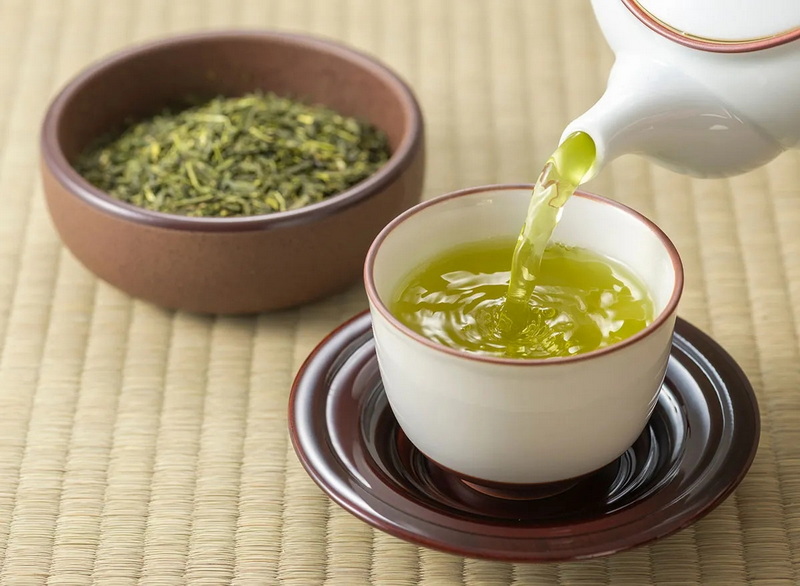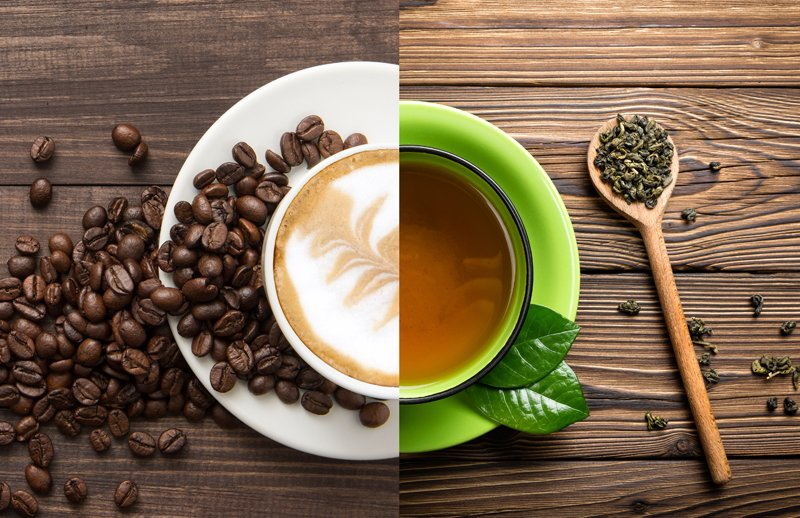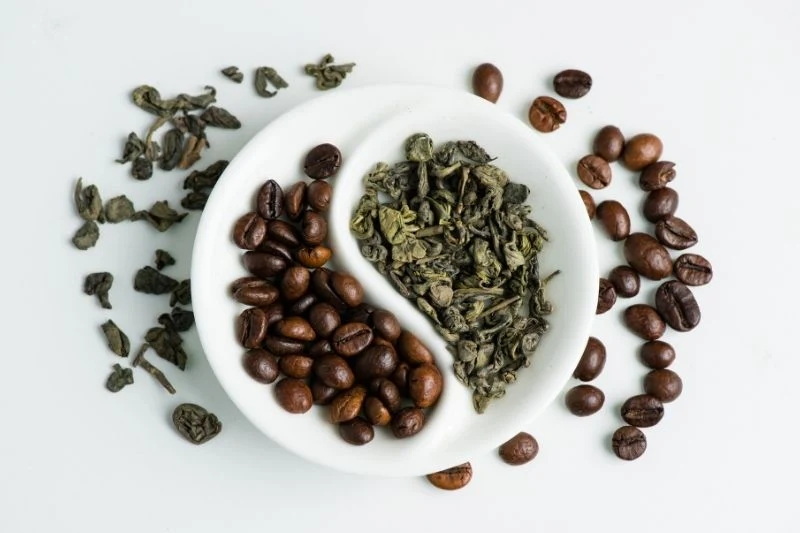Content Menu
● Caffeine Content in Green Tea
● Caffeine in Green Tea Extract
● Comparison with Other Beverages
● Health Benefits of Caffeine in Green Tea
● Potential Side Effects
● The Role of L-Theanine
● Green Tea Varieties and Their Caffeine Content
● Caffeine Tolerance and Personal Variation
● Practical Tips for Enjoying Green Tea
● Conclusion
● FAQ
>> 1. How much caffeine is typically found in a cup of brewed green tea?
>> 2. Does matcha contain more caffeine than regular green tea?
>> 3. Can I find decaffeinated options for green tea?
>> 4. How does the brewing method affect the caffeine content?
>> 5. Are there any health risks associated with high consumption of green tea?
● Citations:
Green tea, derived from the Camellia sinensis plant, is celebrated for its numerous health benefits and relatively low caffeine content compared to coffee and black tea. Understanding the caffeine levels in green tea leaf extract is essential for those who are mindful of their caffeine intake. This article explores the caffeine content in green tea leaf extract, how it compares to other beverages, and its health implications.

Caffeine Content in Green Tea
The caffeine content in green tea can vary significantly based on several factors including the type of green tea, how it is processed, and how it is brewed.
- Typical Caffeine Levels: An 8-ounce (approximately 230 ml) cup of brewed green tea generally contains between 30 to 50 mg of caffeine. However, this can vary:
- Loose leaf green teas often have lower caffeine content than bagged teas.
- Powdered forms like matcha can contain more caffeine, sometimes exceeding 70 mg per serving.
- Factors Influencing Caffeine Levels:
- Type of Tea: Different varieties of green tea (e.g., sencha, matcha, hojicha) have different caffeine levels. For instance, matcha contains higher levels due to the consumption of the whole leaf.
- Brewing Time and Temperature: Longer brewing times and higher temperatures can extract more caffeine from the leaves. For instance, brewing at 80°C (176°F) for longer periods can yield higher caffeine levels compared to brewing at lower temperatures.
Caffeine in Green Tea Extract
Green tea extract is a concentrated form of green tea that retains many beneficial compounds including catechins and caffeine. The caffeine content in green tea extract varies widely depending on the product:
- Caffeine Ranges:
- Some supplements may contain as little as 2 mg to as much as 200 mg or more per serving.
- For example, a typical serving of a standard green tea extract supplement might provide around 50 mg of caffeine.
Comparison with Other Beverages
When comparing the caffeine content of green tea with other popular beverages, it is clear that green tea offers a moderate amount of caffeine:
| Beverage | Caffeine Content (per 8 oz) |
| Brewed Green Tea | 30-50 mg |
| Brewed Black Tea | 40-70 mg |
| Brewed Coffee | 95-200 mg |
| Energy Drinks | 40-250 mg |
This table illustrates that while green tea does contain caffeine, it is significantly less than what is found in coffee or energy drinks, making it a suitable option for those looking to reduce their intake.
Health Benefits of Caffeine in Green Tea
The caffeine in green tea is often accompanied by an amino acid called L-theanine. This combination can lead to several health benefits:
- Improved Focus and Calmness: The presence of L-theanine helps mitigate the jittery effects often associated with caffeine consumption, promoting a state of relaxed alertness. Studies have shown that this unique pairing can enhance cognitive performance and attention.
- Enhanced Metabolism: Research suggests that both caffeine and catechins in green tea may boost metabolic rate and aid in fat oxidation. A study published in the American Journal of Clinical Nutrition found that individuals consuming green tea extract experienced increased fat burning during exercise.
- Antioxidant Properties: Green tea is rich in antioxidants, particularly catechins like EGCG (epigallocatechin gallate), which may protect against oxidative stress and inflammation. These antioxidants are believed to play a role in reducing the risk of chronic diseases such as heart disease and cancer.
Potential Side Effects
While the moderate consumption of green tea is generally safe for most people, excessive intake or sensitivity to caffeine can lead to side effects such as:
- Insomnia: High doses of caffeine can disrupt sleep patterns, leading to difficulties falling asleep or staying asleep.
- Increased Heart Rate: Some individuals may experience palpitations or increased heart rate when consuming high amounts of caffeine.
- Digestive Issues: Excessive consumption may lead to gastrointestinal discomfort or upset stomach.
Individuals with certain health conditions or those who are pregnant should consult with healthcare professionals regarding their caffeine consumption.

The Role of L-Theanine
L-theanine is an amino acid unique to tea leaves that has garnered attention for its calming effects. It works synergistically with caffeine to promote relaxation without drowsiness.
- Mechanism of Action: L-theanine increases alpha brain wave activity, which induces a state of relaxation while maintaining alertness. This effect can help improve focus during tasks requiring concentration.
- Research Findings: Studies indicate that L-theanine may reduce stress responses and improve attention span when combined with caffeine. A study published in Nutritional Neuroscience found that participants who consumed both L-theanine and caffeine performed better on cognitive tasks compared to those who consumed only caffeine.
Green Tea Varieties and Their Caffeine Content
Different types of green tea offer varying levels of caffeine due to their processing methods and plant parts used:
- Sencha: This popular Japanese green tea typically contains about 20-30 mg of caffeine per cup when brewed correctly.
- Matcha: As mentioned earlier, matcha contains higher levels due to the powdered form allowing for greater consumption of the leaf itself—ranging from 70-100 mg per serving depending on preparation.
- Hojicha: This roasted green tea has lower caffeine levels than other types, averaging around 10-20 mg, making it an excellent choice for those sensitive to caffeine.
Caffeine Tolerance and Personal Variation
Individual tolerance to caffeine varies widely based on genetic factors, habitual consumption patterns, and overall health:
- Genetic Factors: Some people metabolize caffeine more quickly due to genetic variations affecting liver enzymes responsible for breaking down caffeine. This means they may experience fewer side effects even at higher doses.
- Habitual Consumption: Regular consumers of caffeinated beverages often develop a tolerance over time. Consequently, they may require larger amounts to achieve similar effects compared to occasional users.
Practical Tips for Enjoying Green Tea
To maximize the benefits while managing your caffeine intake from green tea:
1. Choose Quality Teas: Opt for high-quality loose-leaf teas or reputable brands known for their quality control.
2. Mind Your Brewing Time: Experiment with different brewing times and temperatures to find your preferred flavor profile while controlling the amount of extracted caffeine.
3. Limit Additives: Avoid adding excessive sugar or creamers that can negate some health benefits; consider enjoying your green tea plain or with a splash of lemon for added flavor without calories.
4. Stay Hydrated: Balance your intake by drinking water throughout the day; this helps mitigate any potential dehydrating effects from caffeinated beverages.
5. Monitor Your Body's Response: Pay attention to how your body reacts after consuming green tea; adjust your intake accordingly if you notice any adverse effects like jitteriness or sleep disturbances.
Conclusion
Green tea leaf extract provides a moderate amount of caffeine that can offer various health benefits without the intense stimulation associated with coffee. The unique combination of caffeine and L-theanine promotes a balanced energy boost while enhancing cognitive function. Understanding the variability in caffeine content among different types of green teas and extracts allows consumers to make informed choices based on their individual health needs.
Incorporating green tea into your daily routine can be beneficial not only for its potential weight management properties but also for its overall contribution to well-being through its antioxidant-rich profile. As always, moderation is key; enjoy your cup while being mindful of how it fits into your overall dietary habits.

FAQ
1. How much caffeine is typically found in a cup of brewed green tea?
An average cup of brewed green tea contains between 30 to 50 mg of caffeine.
2. Does matcha contain more caffeine than regular green tea?
Yes, matcha typically contains more caffeine than regular brewed green tea because you consume the entire leaf in powdered form.
3. Can I find decaffeinated options for green tea?
Yes, decaffeinated versions of green tea are available for those looking to limit their caffeine intake.
4. How does the brewing method affect the caffeine content?
Brewing time and temperature significantly affect the amount of caffeine extracted from the leaves; longer steeping times at higher temperatures yield more caffeine.
5. Are there any health risks associated with high consumption of green tea?
Excessive consumption may lead to side effects such as insomnia or digestive issues; individuals should monitor their intake based on personal tolerance levels.
Citations:
[1] https://www.livestrong.com/article/186702-how-much-caffeine-is-in-green-tea-extract/
[2] https://pubmed.ncbi.nlm.nih.gov/10584049/
[3] https://www.healthline.com/nutrition/caffeine-in-green-tea
[4] https://www.youtube.com/watch?v=5OlyxaRgabw
[5] https://www.healthline.com/nutrition/10-benefits-of-green-tea-extract
[6] https://www.truecitrus.com/blogs/tc/clean-caffeine-in-green-tea-vs-coffee
[7] https://www.clipper-teas.com/tea-talk/is-there-caffeine-in-green-tea/
[8] https://www.sugimotousa.com/blog/caffeine-in-green-tea
[9] https://www.youtube.com/watch?v=Q8gBjZ5e3Bs
[10] https://www.elo.health/articles/green-tea-extract-supplements/
[11] https://twinings.co.uk/blogs/news/caffeine-in-green-tea
[12] https://www.zhounutrition.com/blogs/the-greatness-files/green-tea-extract-q-a
[13] https://www.caffeineinformer.com/caffeine-content/green-tea-extract
[14] https://www.reddit.com/r/tea/comments/157das5/how_much_caffeine_in_green_tea_leaves/
[15] https://www.reddit.com/r/chemistry/comments/3gt1zo/how_much_caffeine_in_green_tea_extract/
[16] https://pubmed.ncbi.nlm.nih.gov/16506807/
[17] https://www.urmc.rochester.edu/encyclopedia/content?contenttypeid=19&contentid=greenteaextract
[18] https://www.elo.health/articles/green-tea-extract-supplements/
[19] https://www.medicalnewstoday.com/articles/269538
[20] https://www.healthline.com/nutrition/10-benefits-of-green-tea-extract
[21] https://www.livestrong.com/article/186702-how-much-caffeine-is-in-green-tea-extract/
[22] https://www.birdandblendtea.com/blogs/tea-academy/does-green-tea-contain-caffeine
[23] https://www.shutterstock.com/search/green-coffee-extract
[24] https://www.sugimotousa.com/blog/caffeine-in-green-tea
[25] https://www.istockphoto.com/de/bot-wall?returnUrl=%2Fde%2Fphotos%2Fgreen-tea
[26] https://nioteas.com/blogs/green-tea/green-tea-vs-coffee-caffeine
[27] https://www.youtube.com/watch?v=CkdqsIhHEhM
[28] https://www.webmd.com/vitamins/ai/ingredientmono-960/green-tea
[29] https://ikkyu-tea.com/en/green-tea-faq






























